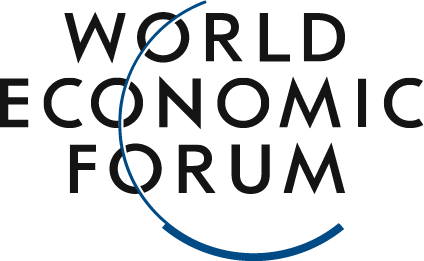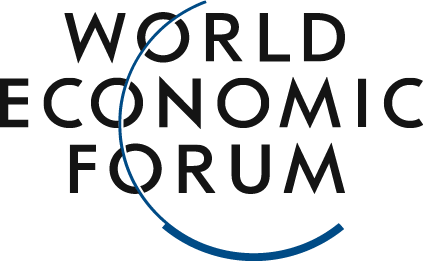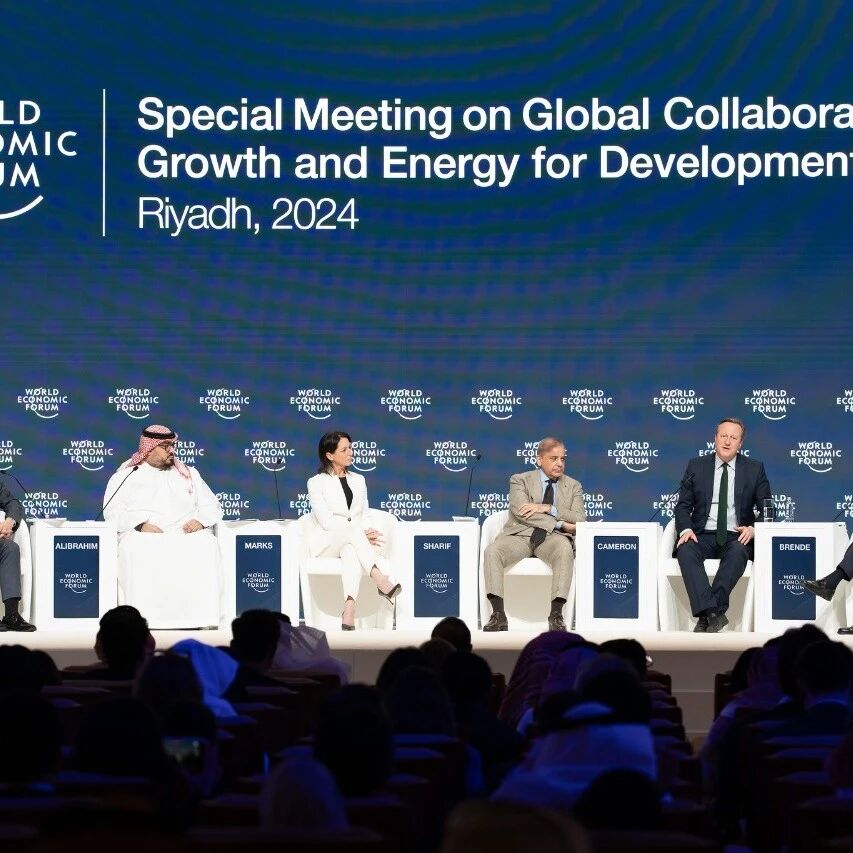The latest "Chief Economist Outlook" highlights that the near-term global economic outlook is stabilizing, though numerous vulnerabilities remain.
Image source:Unsplash
Aengus Collins
Global Managing Director for Economic Growth, Recovery, and Transformation at the World Economic Forum
Philipp Grosskurth
Head of Insights on Economic Growth, Recovery, and Transformation at the World Economic Forum
The latest "Chief Economist Outlook" notes that the near-term global economic outlook is stabilizing, though many vulnerabilities remain.
Public debt levels pose a significant threat to economic stability in both advanced and developing economies.
Slowing inflation and the global business recovery offer some reasons for optimism, but fiscal challenges remain severe.
The global economic outlook is stabilizing amid ongoing economic uncertainty.The World Economic Forum's "Chief Economist Outlook," released in September 2024, reveals that most chief economists—54%—believe the global economic outlook will remain unchanged over the next year, while more than a third (37%) anticipate a global economic downturn.The report notes: "There is reason for cautious optimism, such as the easing of inflation and the recovery in global business. However, while the economy may be stabilizing, its current level of stability remains the weakest it has been in decades.""The Chief Economist Outlook" is published three times a year, featuring surveys of chief economists from various industries and international organizations. The latest edition explores key global economic trends, including the latest forecasts for growth and inflation, the impact of elevated debt levels, and the outlook for a new agenda on growth.The report adds: "Decision-makers face a dual challenge: boosting economic growth while simultaneously striving to shape its structural characteristics. For instance, they must work to reduce the environmental damage caused by economic growth—or mitigate the risk that certain segments of society could be left behind as a result of this growth."Most of the chief economists surveyed believe that the burden of public debt poses a threat to macroeconomic stability in both advanced economies (53%) and emerging economies (64%).The combination of rising debt levels and high interest rates has intensified the burden of interest payments for many countries, to the point where it is now harming their economies. Soaring debt-servicing costs are forcing fiscal austerity measures, and most respondents noted that, over the coming year, the current debt dynamics will undermine governments' efforts to foster economic growth—and could even leave nations ill-prepared to weather future economic downturns.The report notes: "Many countries are facing fiscal challenges, which means they may struggle to prepare for the numerous structural changes underway—changes that include the energy transition, demographic shifts, and evolving national security needs."Nearly 40% of chief economists predict that default rates among developing economies will rise next year.The report also highlights that limited fiscal space leaves countries—59% of advanced economies and 82% of developing economies—ill-prepared to tackle policy challenges and future crises."If debt sustainability continues to severely constrain countries' spending capacity, they may struggle to prepare for critical transformations such as the energy transition, demographic shifts, climate-related disasters, rapid technological changes, and evolving national security needs."Additionally, the report warns that the next major shock to the global economy could trigger a debt crisis, exposing fiscal risks that have been building up over the years.The report adds: "Prolonged fiscal austerity will also hinder efforts to invest in a more balanced growth agenda."Although the U.S. has endured a prolonged period of tight monetary policy, and its labor market conditions have recently remained less than ideal, the chief economist believes the economy will achieve a soft landing. Nearly 90% of economists expect the U.S. economy to experience moderate or stronger growth over the next one to two years. The upcoming election marks a critical political and economic turning point for both the U.S. and the global landscape. In fact, 80% of respondents believe the election outcome will significantly influence global economic policies.The economic outlook for Europe is improving. The chief economist remains cautiously optimistic about the region’s economic recovery, with 53% of respondents expecting moderate or stronger growth in the European economy in 2025—nearly double the 29% who held this view in 2024.The outlook remains strongest in parts of Asia. South Asia stands out particularly, with 70% of chief economists forecasting robust—or even exceptionally strong—growth for the region. Central Asia, as well as East Asia and the Pacific, are also poised to deliver impressive performance.In other regions covered by the survey, economic prospects either remained stable or showed a positive trend. Growth outlooks in the Middle East and North Africa are optimistic but still uncertain, while Latin America, the Caribbean, and sub-Saharan Africa are expected to outpace the global average growth rate.Global inflation rates continue to trend downward, but the pace of decline is slowing.Respondents are highly confident that the U.S. has reversed its inflationary downturn, with the proportion of respondents predicting high inflation dropping sharply—from 21% in 2024 to 6% in 2025. Across the globe, inflation rates are widely seen as moving in the right direction. For instance, in China, the share of chief economists forecasting extremely low inflation fell from 33% in 2024 to 16% in 2025, reflecting growing optimism that the ongoing period of deflation may finally come to an end.As a result, most countries and regions are seeing a shift in monetary policy, with expectations pointing toward a return to more accommodative measures. In the U.S. and Europe, 90% of chief economists anticipate that monetary policy will ease over the next year, while the majority predict that all regions except Central Asia and sub-Saharan Africa will adopt a more dovish approach to monetary policy.The prospects of the new growth agendaWhen asked about the prospects of the new growth agenda, the chief economists’ responses revealed a strong consensus on the importance of balancing growth with other policy priorities. Around two-thirds of respondents agreed that policymakers should prioritize economic growth, while a similar proportion believed that progress on other objectives must be pursued—even if it means slowing down growth in the short term.The primary obstacles to achieving a better balance are the lack of domestic political consensus or political will (91%), as well as insufficient global cooperation (67%). According to the chief economist, domestic political hurdles stem more from leadership and trust issues than from widespread opposition. Meanwhile, the absence of global cooperation is itself influenced by evolving domestic political trends (83%), but is also heavily shaped by heightened geopolitical tensions (91%).The chief economist has been asked to assess whether, in the pursuit of economic growth, compromises or trade-offs might need to be made against the other four potential policy goals: environmental sustainability, economic equality, social cohesion, and national security.In terms of equality and safety, only 12% of respondents said significant trade-offs would be necessary. When it comes to social cohesion, this figure rises to 21%. Only environmental sustainability sparked noticeable disagreement among respondents, with an equal 44% agreeing and disagreeing that trade-offs are required.The report notes: "The long-term economic agenda may increasingly be shaped by these broader questions—namely, what kind of growth is both desirable and achievable."
The above content solely represents the author's personal views.This article is translated from the World Economic Forum's Agenda blog; the Chinese version is for reference purposes only.Feel free to share this on WeChat Moments; please leave a comment below the post if you’d like to republish.
Translated by: Sun Qian | Edited by: Wang Can
The World Economic Forum is an independent and neutral platform dedicated to bringing together diverse perspectives to discuss critical global, regional, and industry-specific issues.
Follow us on Weibo, WeChat Video Accounts, Douyin, and Xiaohongshu!
"World Economic Forum"






